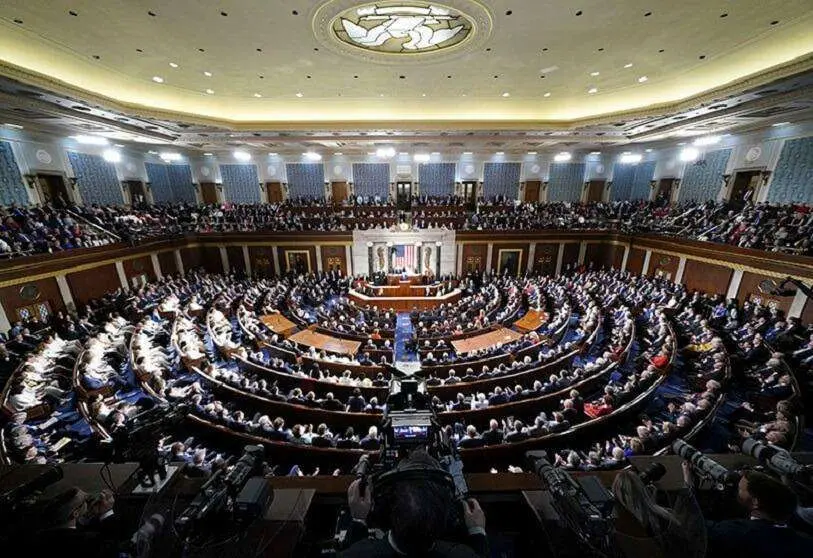The great centres of power are wavering

It may be a mirage, fortunately a passing one, but international instability - not to mention national instability - is wavering. In addition to the already chronic conflicts in Syria, Yemen and the local wars in sub-Saharan Africa, there is the inexplicable confrontation between the attacked Ukraine and the aggressor Russia. The worst thing, over and above this depressing balance sheet, is the image that even among the major powers, whether military, economic or even religious, the prospects for the near future are worrying.
We can start with the United States, the world's superpower, which for some time now has been showing itself to be as weak as the more modest republics of the Third World. After Donald Trump's destructive passage through the White House, the problems that erupted in the withdrawal of troops in Afghanistan - so reminiscent of Vietnam - through the embarrassment - who would have thought it? - and a shameful "Tejero-style" coup attempt, from which society has not yet recovered, political normality has been disrupted.
Chaos now reigns on Capitol Hill, where for the first time in decades the Republicans, who managed to win a majority in the House of Representatives, proved unable to elect a president until exhaustion; after fourteen unsuccessful votes, it was not until the fifteenth that they succeeded in electing McCarthy as president. The votes, interspersed by fruitless negotiations, were repeated one after another, reaffirming the failure of the division left behind by the demagogic shadow of former president Donald Trump who continues to pale democratic life under that threat of "after me, the deluge".
Nor are things as calm in China, which is trying so hard to talk on equal terms with the United States as a superpower, as the recent Communist Party congress hinted at, where the re-election of Xi Jinping has triggered some doubts that have been aggravated by the lack of control with which the coronavirus pandemic continues to rage. For some time it was widely believed that the virus had emerged there, from security flaws in a laboratory. The rumour was not confirmed, but the pandemic continues to ravage many of the country's 1.3 billion people. The usual secrecy, typical of communist regimes, does not provide figures for the number of deaths, let alone surveys of the bewilderment among families who do not understand that the wealth reflected in macroeconomic statistics does not trickle down to them. Threats against the island of Taiwan - an escape valve from other problems - less than 200 kilometres from the mainland, are a prelude to a war of unimaginable proportions.
In Russia, which is no longer a great superpower, although it pretends to be, the war provoked against Ukraine is causing frustration for some, economic hardship for almost everyone, and the end of Vladimir Putin's prominence as the great promise that the ambitions of imperial recovery he had been advocating are becoming more frustrating and painful with each passing day. Patriotism is in tatters when the figures of those killed in combat begin to circulate, and precautions are taken to ensure that the burials of the dead soldiers do not have an echo that contributes to the collective despondency.
Over here, closer to home, in the European Union, which is what most excites and affects us all, politics and the economy, which run parallel, do not offer much cause for optimism either. Problems are piling up in Brussels and others are being exacerbated by the destructive attitude towards unity shown by some countries, which favour receiving rather than contributing, with leaders such as Víctor Orbán, the aspirant destroyer of what the founding fathers achieved 70 years ago. Perhaps, some say, we should cut our losses and give some members a holiday to reflect and change their attitude. The door left open by Brexit remains open.
The Church is a world apart, calmer and more prone to spiritual than material quarrels. But the Vatican, where the administration of faith and spiritual power is concentrated, is also buzzing with different - and in its own way conflicting - criteria and manoeuvres in the management of decisions that, if they do not affect the faith, do subject it to tests and examples that end up threatening it. The immediate publication of the book written by the late Benedict XVI's assistant archbishop, in which he claims to have passed on some delicate invoices to his adversaries, is awaited with much concern.
In the Holy City, many are of the opinion that the new times call for change, but few agree on the calibre of change needed. While some believe that women should be given access to the priesthood and that priests should be able to marry, as happens in other Christian branches, there are those who see the Church's projection into the future as marked by new technologies and modern customs, recovering Latin as the official language for the Liturgy.

